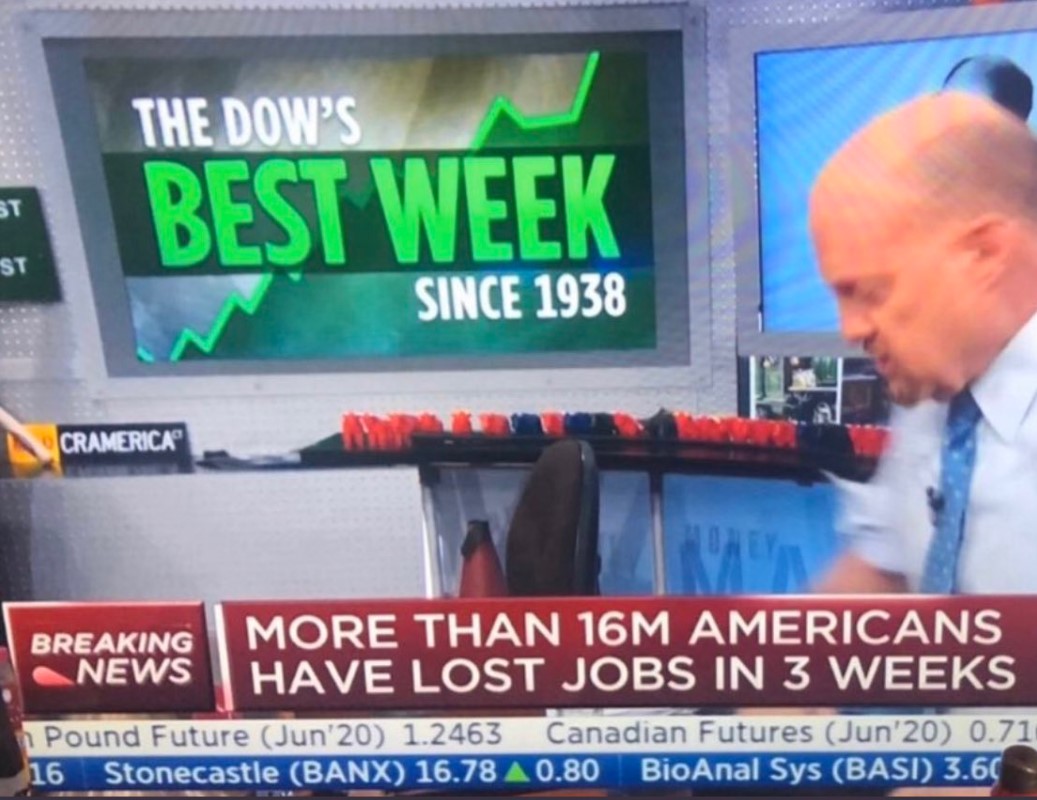A number of people posted this image on social media last week claiming “this is everything that’s wrong with America” at the moment:

It does seem bizarre that the stock market has rallied 26% or so in the face of an oncoming depression.
Michael and I discussed why I’m not bullish or bearish but confused-ish at the moment and why the game of investing is so hard:
If you’re upset that the stock market isn’t getting killed every day even as the news gets worse you don’t really understand how the stock market works. Everyone is confused during a bear market as investors are recalibrating expectations on the fly. Right or wrong, this is how the stock market operates at times. It doesn’t always make sense.
This doesn’t mean the stock market is always right in its forward-looking assessments of the world. But the stock market moves quickly (in both directions) and sometimes doesn’t match the sentiment of the world at large.
This is a good reminder that the stock market is also not a benchmark for economic success (or lack thereof).
Think about it — the top 5 companies make up 19.3% of the S&P 500. The top 10 companies make up more than 26% of the index. And the top 20 names comprise 36% of the S&P.
Those 20 companies don’t control 36% of the economy. They don’t employ 36% of workers. They don’t produce 36% of the products and services or profits or revenues.
So why should we compare this market-cap-weighted basket of stocks directly to the economy at large?
Throughout the remainder of the crisis there will be times when the stock market seemingly moves in lockstep with the economic data. Other times (now for instance) the stock market will seem utterly detached from the economic reality on the ground.
Get used to it.
The stock market not only makes for a terrible short-term barometer of the economy, but it’s also a poor benchmark for your own success.
Any market-related benchmark isn’t going to tell you whether or not you’re on the road to financial success. You can’t measure your financial goals through the daily price levels of the S&P 500 or the Dow.
The pandemic is showing so many of us why health and family are far more important than the gyrations in the stock market. Your career and ability to earn and save money will prove to be more important to your long-term financial health than what happens to stocks.
Is the stock market still a valuable savings vehicle for those who have the means?
Absolutely. A large chunk of my own money is tied up in the stock market.
The stock market remains one of the best, most cost-effective ways to capture the profits, dividends, and innovations that come from the corporate world. Stocks as an asset class will always play a role in shaping your willingness, need and ability to take risk.
But the stock market is not the economy or your career or your family or your health or your happiness. Those are far more important benchmarks when it comes to measuring your success in life.
The stock market plays an important role in the investment industry, acts as a form of capital formation and remains one of the best long-term savings vehicles there is. But the current situation is a good reminder that it’s not the correct benchmark for success.
The ups and downs of the market rarely match the ups and downs of your life.
The stock market is not your benchmark.
